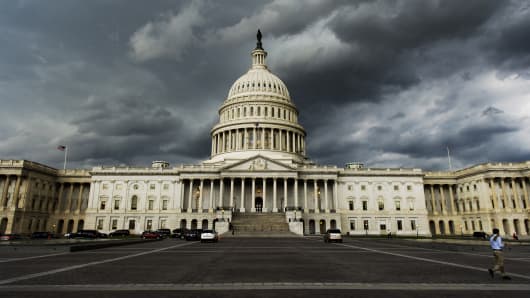Imagine if you received a credit-card bill, through your own irresponsible spending habits, for over $1 million. Well that is exactly what's happening due to our current fiscal crisis in America. Through a lack of discipline and mismanagement, the federal government is essentially handing every household a million-dollar bill.
What would be the best way to escape this self-inflicted situation? The answer does not involve a quick fix; it must be a long-term solution. The first step requires a change in Washington's behavior, which is a big deal given that these problematic spending patterns date back several decades.
Over the past 100 years, Americans have seen the impact of political super majorities that produced the New Deal, the Great Society, and Obamacare and Dodd-Frank. In many ways, these progressive spending plans have failed the very people they claim to champion – working women and men of America – and together, they come at a massive expense to taxpayers and still continue to add to the nation's debt crisis.





